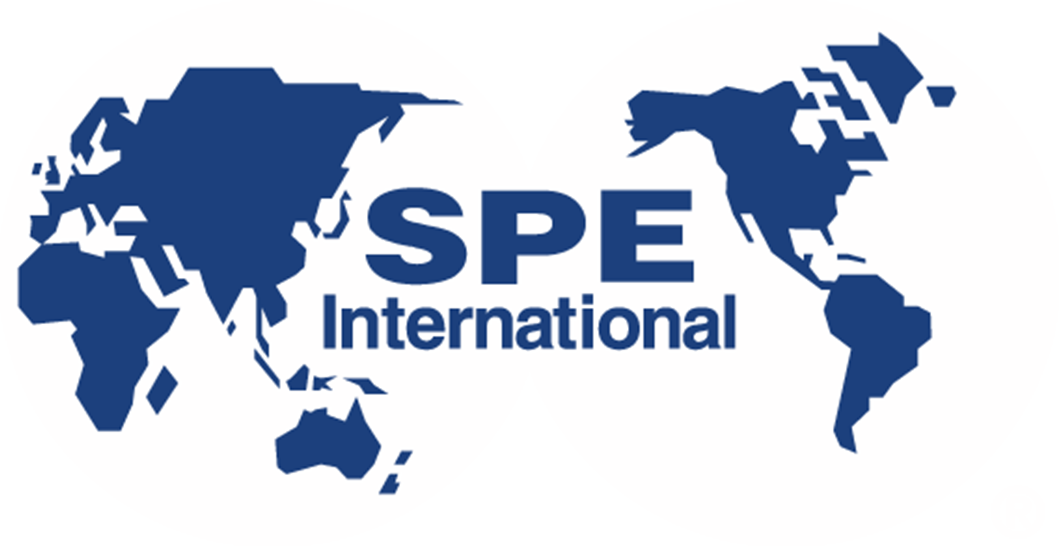Agenda
Wednesday, December 07
Keynote Speaker
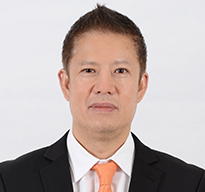
Dr Sarawut Kaewtathip
Director General
Department of Mineral Fuels (DMF) Ministry of Energy, Thailand
Panel Speakers
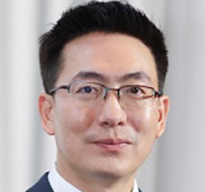
Anupong Chailert
Country Director
Baker Hughes Operations (Thailand) Limited
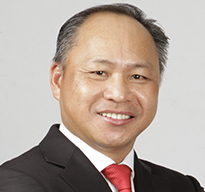
Datuk Joseph Podtung
Chief Executive Officer
Malaysia-Thailand Joint Authority (MTJA)

Noriani Yati Mohamad
General Manager
Resource Development and Management - Sarawak
Malaysia Petroleum Management
PETRONAS
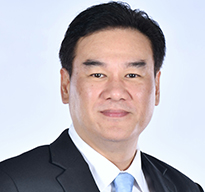
Suppakarn Thanatit
SVP Geosciences
Reservoir Engineering and Corporate Technical Division
PTTEP
Natural gas, a Noble Energy source of 21st century would contribute significantly to the total energy mix in coming future. Its transformation into LNG has made it possible to transport to distant places in various countries where the requirement is high. Therefore, natural gas which is also less GHG-emitting compared to other fossil fuels, would play the role of transition fuel in decarbonatisation and development of renewable energy. Therefore, the gas markets have shifted from a traditional model of a limited number of buyers and suppliers to an accelerated growth market. However, Exploration and production (E&P) is becoming challenging and cost-intensive as easy and big discoveries are either discovered or difficult to find. Most of gas fields yet to be discovered may be either small/contaminated or in hostile environments like deep/ultra-deepwater and high-temperature high-pressure (HPHT). Exploration is vital for E&P Company’s sustainability to supply gas and security of supply i.e., LNG for power generation at competitive development cost and selling prices.
Thus, the growth of the gas sector brings in three types of challenges: Business strategies, technology, and project execution. New projects and technology development are taking place at an accelerated pace for the monetisation of contaminated and isolated stranded gas fields. These efforts open a wide scope for innovative and collaborative technologies and project execution to be brought forward with operators to meet the challenges set out by business strategies. These innovations can be implemented with a structured approach towards balancing cost, quality, reliability, safety, and sustainability in the long term.
This panel session will focus on effective strategy for exploration, Contaminated management liked development, market development, demand, game-changing technologies, and approaches, as well as lessons learned from the gas sector to capture the growth potential in an increasingly competitive market.
- Bringing prudence in capital-intensive exploration strategy, seismic acquisitions, and geohazard, understanding early uncertainty and risks.
- Expediting decision-making for development investment.
- Strategies for monetisation of stranded and contaminated gas fields in conjunction with CCUS.
- Sustaining Gas supply especially through LNG.
- Impact on the climate from greenhouse gas removal technologies for efficient contaminants management.
- Technological challenges in offshore for energy efficiency and reducing GHG facilities and enhancing renewal energy for operation.
Today, the effects of global climate change have become more and more apparent. Whilst the oil and gas industry continue to play an important role in delivering energy to fulfill basic needs as well as industrial development, the industry is also in a crucial position to minimise any impacts to the environment and provide sustainable energy solutions.
This session will focus on sustainable solutions in gas development. The workshop provides an open venue for experts and operators to share their initiatives, current practices, key successes, and outcomes from lessons learned. This workshop will also act as a platform for professionals within and across the energy industries to discuss and connect, with the aim to reach our common goal, mitigate global climate change.
The workshop will aim to discuss and/or address:
- Carbon Neutral and Net Zero target initiative
- Carbon Capture Utilisation and Storage
- Greenhouse Gas Reduction
- Renewable Energy
- Future Trends
Discussion Leaders:
- Geochemistry Study for the CO2-H2S Injection for Carbon Capture and Storage, Mohd Fakrumie Zaidin, PETRONAS
- Arthit Carbon Capture and Storage Project: The Major Leap Towards to PTTEP's Net Zero Target, Saranee Nitayaphan, PTTEP
- Where is the CO2? Monitoring the Saturation with a Multidetector Pulsed Neutron Tool, Luis Quintero, Halliburton
- A Hybrid Wind And Solar Energy Supply System for Offshore Platform in Gulf of Thailand, Sirichat Tangpuk, PTTEP
As a quarter of gas reserves are still undeveloped and stranded due to regulations and societal environmental demand, it is imperative to improve well design and operations to overturn the economics for natural gas field development while preparing for the energy transition in meeting the net-zero target by 2050.
This session will discuss innovative well completion design and operations that improve safety, cost, and efficiency. This includes a paradigm shift in completion design/strategy for gas wells that is fit-for-purpose to improve well economics, enhancement of metallurgy and strategy selection to manage high contaminants, and application of new technology and digitalisation that reduces the operating cost and improves efficiency. This session will also discuss well design in terms of converting existing wells to monetise gas caps through Gas Cap Blowdown (GCBD) and CCUS projects implementation.
Apart from knowledge sharing on net-zero initiatives and relevant new technologies in preparation for energy transition and future requirements for GHG management, the session will also gather lessons learnt from various projects and available technologies to overcome challenges related to gas wells development that will overturn the economics in gas field development projects.
Discussion Leaders:
- Well Integrity: Key Learning Experience in Managing Producing Wells with Prolific High Temperature in Offshore Malaysia, Khairina Khairul Anuar and Junnyaruin Barat, PETRONAS
- Geopolymer Cement: Potential Solution for CO2-Rich Well, Ahmad Amirhilmi A Razak, PETRONAS Research Sdn. Bhd.
- A New, Non-Destructive Model to Predict CO2-Resistance Cement Compressive Strength, Nurul Nazmin Zulkarnain, PETRONAS
- Cengkih-1 Wildcat Pinnacle Carbonate Drilling without PMCD – A Success Story, Mohd Yusnizam Mohamed Yusoff, Mubadala Energy
Discussion Leaders:
- Effect of Pressure, Temperature, and Contaminant in Designing Injector Well for Carbon Capture and Storage (CCS) Project, Latief Riyanto, PETRONAS Research Sdn. Bhd.
- Methane Emissions Detection and Quantification Using UAV Surveys Enables Abatement from Offshore and Onshore Oil and Gas Facilities, Dave Turner, SeekOps Inc
- Safeguarding Production via Well Integrity Management Approach in High Temperature Gas Producer, Offshore Sarawak, Brandon Joseph, PETRONAS
Thursday, December 08
Full collaboration between the host government, resource owners, operators, and partners is always important to ensure holistic reservoir development, management, and operations of natural gas resources in meeting the ever-growing energy demand. For the security of gas supply, reservoir development strategy is key to warrant optimum recovery of gas resources through effective exploration and appraisal programs. Innovative approaches and well-established technologies at their optimum costs are adopted for the development of the assets and maintaining the operational uptime throughout their production life.
This session aims to focus on the collaboration between Subsurface and Surface parties in integrating reservoir management and facilities’ operational life for the proper depletion of hydrocarbon fields without leaving significant remaining resources untapped. This workshop will also provide opportunities for professionals to share their expertise and current best practices in securing the gas supply either through gas hub development, sand and impurities management, sweet spot evaluation for categorizing reservoir quality, behind casing opportunity (BCO) technology, PE/IWR (production enhancement/idle well reactivation) methods and sustainability of Maintenance and Reliability (M&R) uptime.
Discussion Leaders:
- Downhole Determining Sand Flow Intervals, Lenar Sungatullin, TGT Diagnostics
- Value Generation from Condensate Production Optimisation: A Data Analytics Case Study in East Malaysia Gas Field, Aqil Muhammad Yusof and Victor Hugo Hamdan Bagnon, PETRONAS Carigali Sdn. Bhd.
- Steady State, Transient and Depressurisation Modelling Study to Develop Operation Guideline for CO2 Injector in Depleted Carbonate Field, Carbon Capture and Storage (CCS) Development Project, Offshore Malaysia, Mohd Azuan Abu Bakar, PETRONAS
- Manuscript Managing Mercury Risks with Unknown Data, Syed Ahmad Firdaus Syed Abdul Halim and Syed Zaidi, Mubadala Energy
Many organisations across the oil and gas business had been taking major steps toward digital transformation by utilising digital technologies to enhance operational efficiencies in all aspects of the end-to-end value chains including but not limited to exploration, production, cost, safety, and people management
Many tools and application were already developed either internally or by business partners to serve these purposes.
This session aims to encourage sharing some of the great initiatives with advanced digital technologies being adopted in natural gas management and development focusing on E&P big data analytics and machine learning for predictive capabilities in enhancing overall system performances & sustainability. These initiatives include:
• Real-time remote operations and connected workers
• Implementation of digital twins of onshore/offshore facilities
• Tools used to improve the development of gas reservoirs
• Management of Integrated Gas Production Systems at the operation phase
• Reservoir Management
• Improvement to the Drilling and well services efficiency
• Improvement to the management of complicated logistics
• Wells and Asset Integrity
• Safety and environmental aspects
Discussion Leaders:
- A Successful Case of PTTEP Digital Transformation in the Gulf of Thailand Assets, Condensate Stabilisation Real-Time Optimisation, Supha-Kitti Dhadachaipathomphong, PTTEP
- Efficient Fault Interpretation using Machine Learning Technique in Jasmine Field, Gulf of Thailand, Sherry Pambayuning, Mubadala Energy
- DT & T Technological Advancement in Gas Development Projects, Jonathan Chin, JX Nippon Oil & Gas Exploration (Malaysia)
- A Novel Approach using Pulsed Neutron Machine Learning Techniques to Determine Porosity and Lithology for Complex Carbonate Reservoirs, Mahmoud Saada, Halliburton
With mature oil and gas-producing assets approaching late-life phase, exploitation of gas-cap blowdown opportunity and effective late-life facilities management is critical for optimising field recovery and continued safe and profitable operation. Collaboration between subsurface and surface parties in integrating the facilities' operational life will be important to properly deplete hydrocarbon fields without leaving significant remaining resources untapped.
Understanding the key considerations and trade-off value for GBD execution and asset life opportunities requires in-depth knowledge of the condition of the existing systems (subsurface and surface) and how functional requirements change over time.
This session will cover:
Early consideration for GBD exploitation of existing fields.
- Methodology and triggers for enabling GBD opportunity.
- Cost-effective and feasible development plan.
Late-life and depleted fields facilities management.
- Re-locate/re-use of the facilities
- Decommissioning of the facilities
- Asset's integrity, reliability, and availability assurance
Discussion Leaders:
- Realising Gas Blowdown (GBD) Opportunity: The Methodology, Triggers & Challenges, Mohd Afzan Mohammad, PETRONAS
- Value Driven Approach to Prolong Asset Life with Gas Cap Blowdown (GCBD) Initiative: A Case Study of Maximising Asset Value for Mature Oil Fields, Kamarul Ariffin Buang, ExxonMobil Exploration & Production Malaysia Inc. (EMEPMI)
- AWR-26 The first PTTEP Topside Reuse Project, Nuntawatt Pairachavet, PTTEP
- Reuse of Offshore Facility at End of Field Life for New Field Development, Mohd Rashid Jamil and Fairudul Azhar, Vestigo Petroleum Sdn Bhd
